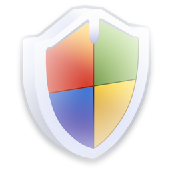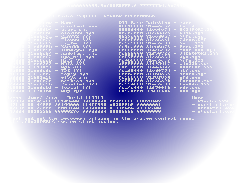




From Wikipedia, the free encyclopedia
A computer virus is a computer program that can copy itself and infect a computer. The term "virus" is also commonly but erroneously used to refer to other types of malware, adware, and spyware programs that do not have the reproductive ability. A true virus can only spread from one computer to another (in some form of executable code) when its host is taken to the target computer; for instance because a user sent it over a network or the Internet, or carried it on a removable medium such as a floppy disk, CD, DVD, or USB drive. Viruses can increase their chances of spreading to other computers by infecting files on a network file system or a file system that is accessed by another computer.[1][2]
The term "computer virus" is sometimes used as a catch-all phrase to include all types of malware. Malware includes computer viruses, worms, trojans, most rootkits, spyware, dishonest adware, crimeware, and other malicious and unwanted software, including true viruses. Viruses are sometimes confused with computer worms and Trojan horses, which are technically different. A worm can exploit security vulnerabilities to spread itself to other computers without needing to be transferred as part of a host, and a Trojan horse is a program that appears harmless but has a hidden agenda. Worms and Trojans, like viruses, may cause harm to either a computer system's hosted data, functional performance, or networking throughput, when they are executed. Some viruses and other malware have symptoms noticeable to the computer user, but many are surreptitious or go unnoticed.
From Wikipedia, the free encyclopedia
Malware, short for malicious software, is software designed to infiltrate a computer system without the owner's informed consent. The expression is a general term used by computer professionals to mean a variety of forms of hostile, intrusive, or annoying software or program code.[1] The term "computer virus" is sometimes used as a catch-all phrase to include all types of malware, including true viruses.
Software is considered malware based on the perceived intent of the creator rather than any particular features. Malware includes computer viruses, worms, trojan horses, most rootkits, spyware, dishonest adware, crimeware and other malicious and unwanted software.

Copyright © 2008-2009 INSIDECOMPUTERS.co.uk All Rights Reserved.
From Wikipedia, the free encyclopedia
Spyware is a type of malware that is installed on computers and collects information about users without their knowledge. The presence of spyware is typically hidden from the user. Typically, spyware is secretly installed on the user's personal computer. Sometimes, however, spywares such as keyloggers are installed by the owner of a shared, corporate, or public computer on purpose in order to secretly monitor other users.
While the term spyware suggests software that secretly monitors the user's computing, the functions of spyware extend well beyond simple monitoring. Spyware programs can collect various types of personal information, such as Internet surfing habits and sites that have been visited, but can also interfere with user control of the computer in other ways, such as installing additional software and redirecting Web browser activity. Spyware is known to change computer settings, resulting in slow connection speeds, different home pages, and/or loss of Internet or functionality of other programs. In an attempt to increase the understanding of spyware, a more formal classification of its included software types is captured under the term privacy-invasive software.
From Wikipedia, the free encyclopedia
Antivirus (or anti-virus) software is used to prevent, detect, and remove malware, including computer viruses, worms, and trojan horses. Such programs may also prevent and remove adware, spyware, and other forms of malware.
A variety of strategies are typically employed. Signature-based detection involves searching for known malicious patterns in executable code. However, it is possible for a user to be infected with new malware in which no signature exists yet. To counter such so-called zero-day threats, heuristics can be used. One type of heuristic approach, generic signatures, can identify new viruses or variants of existing viruses by looking for known malicious code (or slight variations of such code) in files. Some antivirus software can also predict what a file will do if opened/run by emulating it in a sandbox and analyzing what it does to see if it performs any malicious actions. If it does, this could mean the file is malicious.

From Wikipedia, the free encyclopedia
The Blue Screen of Death (also known as a stop error, BSoD, bluescreen, or Blue Screen of Doom) is a colloquialism used for the error screen displayed by some operating systems, most notably Microsoft Windows, after encountering a critical system error that can cause the system to shut down to prevent irreversible damage to the system's integrity. It serves to present information for diagnostic purposes that was collected as the operating system issued a bug check.

A boot sector virus is one that infects the first sector, i.e. the boot sector, of a floppy disk or hard drive. Boot sector viruses can also infect the MBR. The first PC virus in the wild was Brain, a boot sector virus that exhibited stealth techniques to avoid detection. Brain also changed the volume label of the disk drive.